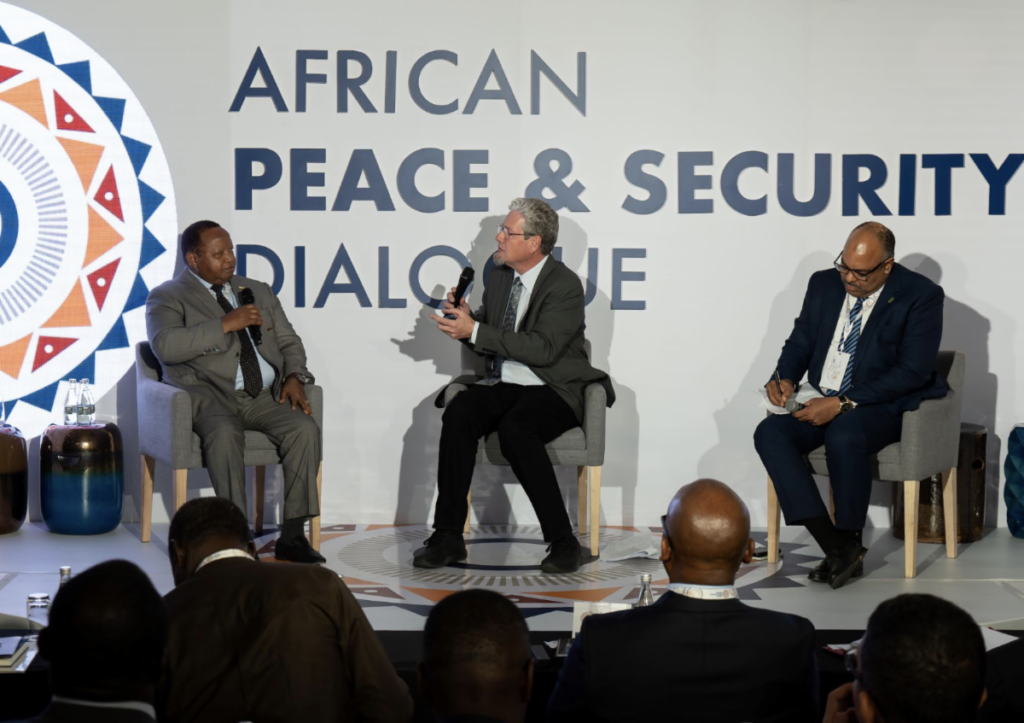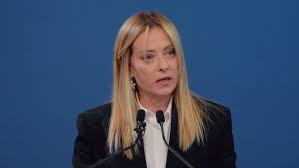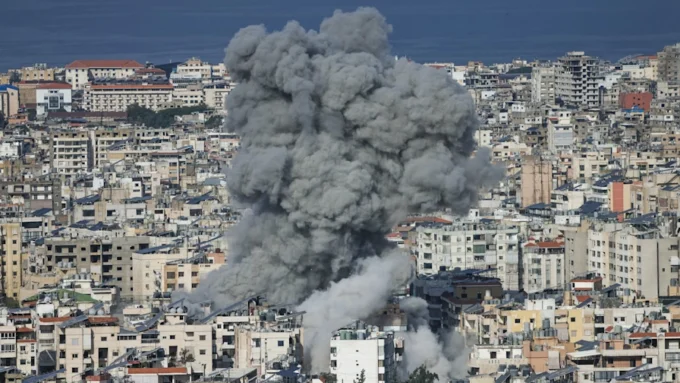The African Peace and Security Dialogue (APSD) has once again brought together leading African policymakers, scholars, and civil society organizations to confront some of the continent’s most pressing challenges. Designed to spark critical discussions and find sustainable solutions to Africa’s enduring issues, the dialogue is being held at a time when the continent faces numerous political, social, and economic upheavals.
The event opened with a strong appeal from Gauteng Premier Panyaza Lesufi, who emphasized the need for African nations to put the continent’s collective interests first. He called on the delegates to work towards reclaiming Africa’s future by finding African-led solutions for African problems. Lesufi stressed the importance of collaboration, urging attendees to move beyond individual national interests and focus on what is best for the continent as a whole.
Geraldine Fraser-Moleketi, Chairperson of the Thabo Mbeki Foundation Board of Trustees, expressed concerns over the African Union’s (AU) current framework, which she said has struggled to maintain peace and stability across the region. Fraser-Moleketi emphasized the need for introspection, drawing lessons from Africa’s past, including its voluntary relinquishment of nuclear weapons. She challenged attendees to leverage the dialogue as a proactive platform to develop more effective peace mechanisms across Africa.
“Amongst us today are individuals with vast experience in peace and security matters,” said Fraser-Moleketi. “We gather at a time when the world is in turmoil, but Africa remains a continent of potential and resilience. Our strength lies not only in our rich resources but in our collective will to build a peaceful and prosperous future. This dialogue must be committed to that mission.”
Professor Funmi Olonisakin, Vice President of International Engagement and Service at King’s College London, delivered a critical analysis of Africa’s current peace and security strategies. She highlighted three major blind spots in the continent’s approach: the uncritical acceptance of external solutions to African conflicts, the gap between peace norms and their implementation, and flawed leadership approaches at national, continental, and global levels.
Professor Olonisakin stressed the need for Africa to address these blind spots by crafting solutions that are rooted in African realities. She called for a collective response to tackle deep systemic issues, including rethinking leadership structures, reforming the AU Commission’s selection process, and empowering the African Parliament in leadership appointments.
“The gap between our intentions and actions is considerably wide, and external influences often derail the common agenda we set for ourselves,” Olonisakin said. “We need to rethink leadership in Africa and take ownership of our security and development agenda.”
On the second day of the event, South Africa’s Deputy Minister of Defence and Military Veterans, General Bantu Holomisa, addressed the growing focus on militarized conflict resolution across the continent. He warned that relying too heavily on military solutions would strain resources that could be better used for social development programs such as education, healthcare, and poverty alleviation.
Holomisa argued that the continent’s resources should be directed toward empowering institutions for peace and conflict resolution rather than perpetuating wars. “A shift towards diplomacy and peaceful negotiations is urgent if we are to build a stable and prosperous future for Africa,” he said.
With two days of keynote speeches, panel discussions, and closed-door roundtable sessions, the APSD aims to generate practical solutions to Africa’s multifaceted challenges. These include conflicts, insecurity, poverty, inequality, governance deficits, and environmental degradation. Inspired by former President Thabo Mbeki’s vision of an African Renaissance, the dialogue serves as a crucial step toward transforming Africa’s potential into tangible progress.
By fostering unity and emphasizing African-driven solutions, the APSD continues to serve as a platform for meaningful action toward lasting peace and prosperity on the continent.














Leave a comment